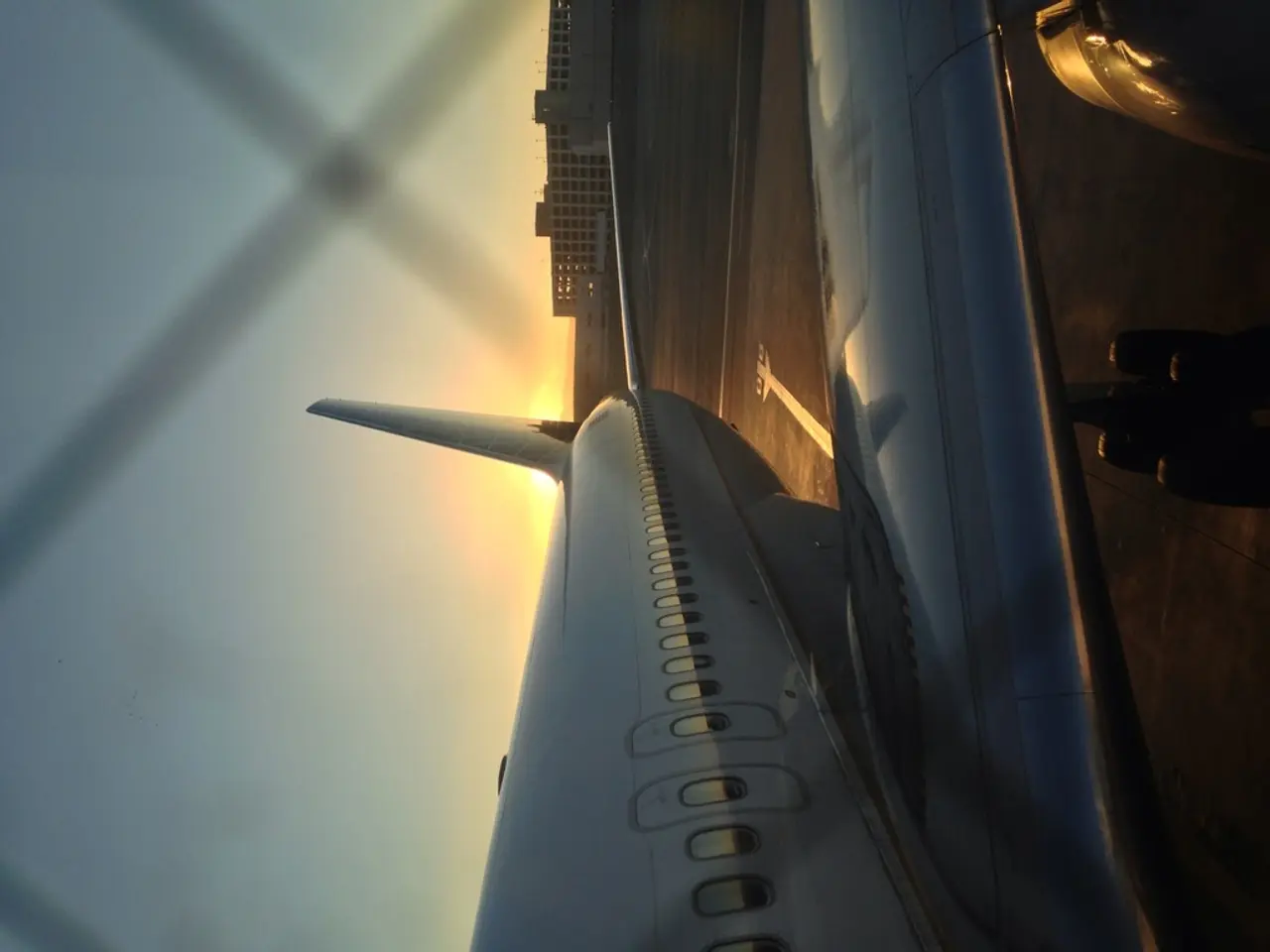Disrupting GPS Signals: Understanding the Potential Risks for Aviation
In a recent incident on September 1, at 4:17 PM, a commercial plane experienced a GPS disruption, forcing the pilots to rely on paper maps for landing. This incident, confirmed by the EU Commission, highlights the increasing threat of GPS jamming, a phenomenon that has become a daily concern for pilots across the continent.
GPS jamming involves a jammer transmitting a strong radio signal at the same frequency as the GPS signal, drowning out the weak signal from the satellites. Small, easily accessible devices that locally block the GPS signal can be bought online for a few hundred euros, making them a potential threat to various sectors, including supply chains and emergency services.
Unlike jamming, GPS spoofing, a more sophisticated form of disruption, remains less noticeable. False data is sent to the receiver, making the navigation device believe it's in a different location. This form of attack can have dire consequences, potentially leading to the crash of an airplane.
The problem of GPS disruptions is growing as more autonomous vehicles, drones, and logistics rely on GPS, increasing our dependence on the technology. Europe has been particularly affected, with disruptions almost daily occurrences since the beginning of the Russian invasion of Ukraine. The Baltic Sea, the Gulf of Finland, and the Black Sea region have been hotspots for these disruptions, with countries like Sweden, Poland, the Baltic states (Estonia, Lithuania), and Finland experiencing frequent interference. Notably, between January and April 2025, significant GPS interference affected air traffic over Northern Europe, impacting thousands of flights and raising safety concerns.
Experts speak of "Navigation Warfare" - a form of warfare that targets the enemy's access to precise position data. Engineers worldwide are searching for defense options against GPS jammers, such as directional antennas, Inertial Navigation (INS), and combining multiple systems. A long-term solution could be stronger encryption, but it is technically demanding and has not yet been widely implemented. Many civilian GPS signals are unencrypted, making them vulnerable to disruptions.
The European satellite system Galileo is crucial for reducing GPS disruptions. However, the threat remains, as demonstrated by the incident involving Ursula von der Leyen, the President of the European Commission, who experienced GPS disruptions during her flight to Plovdiv. The interference also blocked jets from landing at Tartu Airport in Estonia.
As our reliance on GPS technology grows, so does the need for robust security measures to protect against these disruptions. The ongoing efforts to develop such measures are crucial in ensuring the safety and efficiency of various sectors, from aviation to logistics, in the face of this growing threat.
Read also:
- Peptide YY (PYY): Exploring its Role in Appetite Suppression, Intestinal Health, and Cognitive Links
- House Infernos: Deadly Hazards Surpassing the Flames
- Aspergillosis: Recognizing Symptoms, Treatment Methods, and Knowing When Medical Attention is Required
- Biomarkers as potential indicators in guiding treatment for ulcerative colitis?








